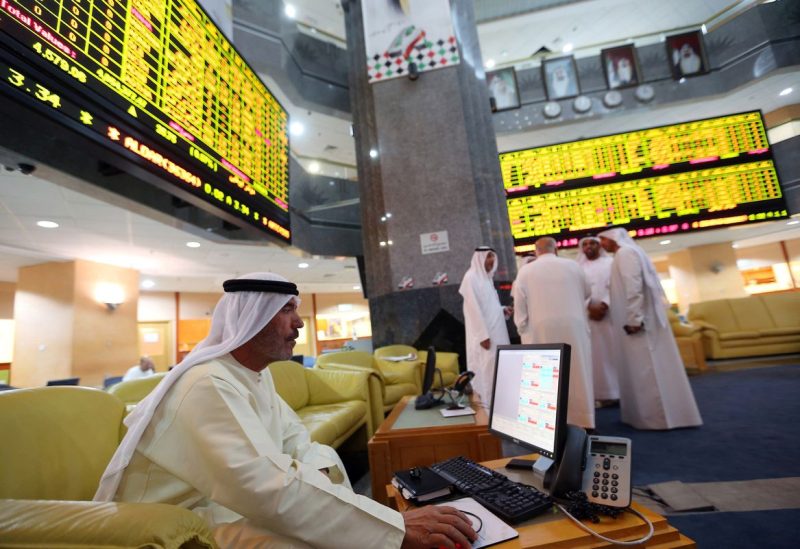
An investor monitors a screen displaying stock information at the Abu Dhabi Securities Exchange June 25, 2014.
In early trade on Tuesday, major Gulf stock markets were mixed as crude oil prices fell and caution prevailed ahead of the release of US inflation data.
Crude prices, a key factor in the Gulf’s financial markets, fell as recession fears and worsening COVID-19 outbreaks in China fueled concerns about lower fuel demand, outweighing supply concerns.
Crude prices hit their highest since August on Monday amid speculation leaders in top crude importer China were weighing an exit from the country’s strict COVID-19 restrictions.
Chinese health authorities doused that speculation on Saturday, reaffirming the country’s commitment to its strict zero-COVID policy.
Saudi Arabia’s benchmark stock index dropped 0.7%, hit by a 1.5% fall in Saudi National Bank, the country’s biggest lender, and a 0.6% decline in oil giant Saudi Aramco.
Dubai’s main share index added 0.2%, with Commercial Bank Of Dubai jumping 4.3% to recoup some of the previous session’s losses.
State developer Nakheel secured 17 billion dirhams ($4.63 billion) in financing from local banks for new projects, including Dubai Islands and other waterfront developments.
The transaction comprises 11 billion dirhams in refinancing and additional funds of 6 billion dirhams through a syndicate of three local lenders.
In Abu Dhabi, the index fell 0.2%, easing from a record high hit in the previous session.
The United Arab Emirates will be a responsible supplier of oil and gas for as long as the world needs, its President Sheikh Mohammed bin Zayed al-Nahyan said on Monday at the start of two weeks of climate talks in Egypt.
Qatari stocks climbed 0.4%, bolstered by a 5.1% jump in telecoms firm Ooredoo following a report that Saudi Arabia’s sovereign wealth fund Public Investment Fund (PIF) would consider bidding for Ooredoo’s tower unit.